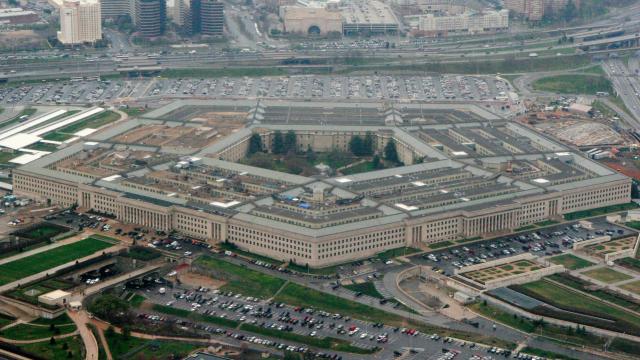Amazon thinks it lost a military cloud computing contract worth $US10 ($15) billion to rival Microsoft because our vendetta-addled president wanted to personally “screw” CEO Jeff Bezos, court documents show.
Per the water-conserving toilets.)
Amazon’s complaint in the United States Court of Federal Claims in Washington claims that Trump intervened in the contract process to hurt Bezos, “his perceived political enemy,” with the Defence Department making “blatant, inexplicable errors” complying with the White House’s directive.
The Pentagon “failed to acknowledge the numerous instances in which [Amazon Web Service’s] demonstrated capabilities vastly exceeded performance requirements,” Amazon’s legal team wrote, “while ignoring instances where Microsoft necessarily failed to demonstrate its solution met the technical requirements.” Amazon added in the complaint that the Pentagon had “departed from the rules of procurement and complied”consciously or subconsciously”with its commander in chief’s expressed desire to reject AWS’s superior bid.”
Amazon claims in the filings those factors included a last-minute requirement preventing it from using “existing data centres already certified for classified use and instead requiring AWS to build new dedicated classified infrastructure for DoD,” driving up the cost of its bid. Another assertion involves Secretary of Defence Mark Esper, who re-opened the JEDI bidding process after the departure of his predecessor Jim Mattis in late 2018.
Amazon wrote that while Esper recused himself from matters involving the JEDI contract on Oct. 22, 2019, citing conflicts of interest, the decision to award the contract to Microsoft had already happened five days earlier. The filing calls this an “unprecedented and bizarre attempt to rewrite the factual record and unsully a process tainted by the President’s intervention.”
“DoD’s substantial and pervasive errors are hard to understand and impossible to assess separate and apart from the President’s repeatedly expressed determination to, in the words of the President himself, “˜screw Amazon,’” Amazon wrote, referring to an order Trump allegedly gave Mattis in 2018.
The $US10 ($15) billion isn’t all that’s on the table. While JEDI was initially billed as a data-management system for the military backend, it is also a potential opportunity for tech giants to expand their foothold in the wildly lucrative contracting business feeding off the U.S.’s ever-expanding war machine. An April 2018 article in Defence One indicated that top defence officials such as Mattis viewed cloud computing as a way “not just to manage files, email, and paperwork but to push mission-critical information to front-line operators.”
Employee protests at the prospect of their work being used to fuel conflict drove Google out of the bidding process and created a ruckus at Microsoft, where staffers wrote a letter claiming JEDI could cause “human suffering” in pursuit of “short-term profits.”
Amazon was widely considered to be the clear front-runner for the JEDI contract until the bidding process entered its final phase. Somewhat tellingly, competitors including Google, Microsoft, Oracle, and IBM were reportedly furious about stipulations in the contract that, to them, seemed designed to clear the company’s path of rival bidders (as well as reports Amazon offered a Pentagon official working on the project a lucrative job).
One DC lobbyist for Oracle, Kenneth Glueck, reportedly shopped White House aides a memo claiming that Amazon won the contract due to a “conspiracy,” with the document making it all the way to Trump’s desk.
In a statement to Times, the Defence Department denied that Trump’s hatred of Bezos or any other outside factors played a role in its decision.
“This source selection decision was made by an expert team of career public servants and military officers from across the Department of Defence and in accordance with D.O.D.’s normal source-selection process,” Pentagon spokeswoman Elissa Smith told the paper. “There were no external influences on the source selection decision.”
